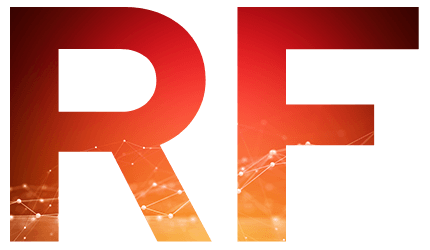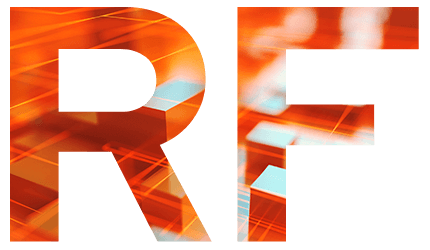Frequently Asked Questions
Updated November 2023
In this section, we have provided answers to many of the questions we have received to date. We also provide quarterly updates to the Court with the status of the Receivership, which are also posted at the top of the Court Filings section of the website here.
The questions are generally organized in the following topics:
Status of the Receivership
Distribution of Assets
Tax Issues
General Receivership Questions
Q. What is the current status of the Receivership?
A. The Receiver has completed her distribution of the remaining publicly traded securities to Class 4 claimants. The distribution of all of the estate’s shares in Airbnb, Bloom Energy, Cloudera, Dropbox, Lyft, MongoDB, Palantir, Pinterest, Snapchat, and Uber is therefore complete. The Receiver is exploring options to monetize the estate’s holdings of three securities that have yet to go public (Addepar, Lookout and ZocDoc).
In late 2020, the Receiver also made a cash distribution to Class 3 Claimants in the amount of 80% of their cash claims. Although the Receiver does not yet have an estimate as to when additional distributions can be made, the Receiver remains optimistic that Class 3 Claimants will receive another substantial distribution, possibly up to 100% of their allowed claims.
The Receiver has also converted all administrative stock reserves to cash, primarily for two reasons: (1) holding stock reserves as cash means that the Receiver can hold smaller reserves, because the Receivership is not exposed to potential future stock fluctuations; and (2) completing all securities transactions in 2021 will assist in speeding up the Receiver’s efforts to bring the estate to a close by commencing the tax audit period which will take three years.
Q. What are the next steps now that the sale or distribution of all the shares is complete?
A. The three-year audit period for the IRS to review the tax return covering the sale and distribution of the publicly traded securities will begin when that return is filed, sometime around April 2022. The Receiver will have filed those taxes in consultation with her tax advisers and relying on the expert valuation of the securities that were sold or distributed, and thus believes that those returns will fully and accurately reflect the taxes owed. Nevertheless, the Court has made clear that the estate must be properly reserved and therefore the Receiver will hold sufficient cash in the estate in case the IRS assesses any additional taxes.
Q. What about the securities that haven’t gone public?
A. Three of the investments have not had a liquidity event, and therefore are not eligible for distribution under the Plan: Addepar, Lookout, and ZocDoc. Because there are substantial restrictions on the sale or transfer of non-public securities, the Distribution Plan approved by the Court does not permit the distribution of non-public shares to investors. It is possible that some of those securities will never go public.
The Receiver is therefore evaluating options to monetize the non-public securities on the secondary market, so that the value thereof can be unlocked for claimants that invested in those securities. Any such action will be discussed with the SEC and the Investment Advisory Committee and will be subject to Court approval. Once the Receiver is able to dispose of all securities in the estate, the clock will start on the process of being able to close the Receivership following the conclusion of all tax audit periods and the remaining assets are distributed to claimants.
Q. Why are you holding so much cash for tax reserves?
A. The Receiver has valued the securities that came into the estate in consultation with an expert retained by the estate for that purpose. The Receiver therefore believes that the estate has and will pay the correct amount of taxes paid under the Qualified Settlement Fund rules. Nevertheless, the Receiver must be cautious and prepared for all possible outcomes, including the unlikely chance that the IRS will assess additional taxes.
If, however, the IRS accepts the return without further audit, which the Receiver is advised is the most likely outcome, the cash in the estate will be available for distribution to claimants, including the Class 4 claimants whose shares were sold to fund those reserves. The Receiver remains optimistic that she will be able to distribute that cash near the close of the Receivership.
Q. Am I getting more Palantir shares? How about any of the other Publicly Traded Securities?
A. The distribution of shares for all publicly traded securities (Airbnb, Bloom Energy, Cloudera, Dropbox, Lyft, MongoDB, Palantir, Pinterest, Snapchat, and Uber) is complete. The estate is no longer holding any of those shares, and is holding all reserves related to those shares as cash.
Q. How can I see how many shares I should have received?
A. If you go to the Claims section of the website, you will find for each individual claimant: the gross investment made by the claimant; the total Allowed Shares; the shares sold by the estate for the Plan Fund, taxes and reserves; and the shares in each distribution.
Q. Why is the distribution 51% of the Palantir Allowed Shares? What were the other shares sold for?
A. The total Allowed Shares for Palantir, based upon the valid claims submitted, is 5,895,855. The Receivership was in possession of 5,740,249 shares, of which: (a) 966,995 were sold for the Plan Fund and associated commissions and taxes; (b) 1,052,465 were sold to fund the Tax Holding Account to pay known tax liabilities of the Receivership; and (c) 716,003 were sold to fund the administrative reserve for potential tax liabilities of the Receivership. That left 3,004,786 shares – or 51% of the Allowed Shares – available for distribution to claimants, which was completed during the Second Quarter of 2021.
There will not be another distribution of Palantir shares. However, if there are excess cash reserves after the final tax liabilities are ascertained, the Receiver may be able to make a cash distribution at such later date. For more information, please see the Receiver’s motion, which was approved by the Court, explaining the distribution of Palantir here.
Q. Why did you place $9.76 million of the Palantir sales proceeds, as well as proceeds from the sales of other stocks, in the Plan Fund? Is that your fee?
A. That is not our fee. When the SRA funds were placed into federal receivership by the Securities Exchange Commission, and there were a number of claimants that had and continue to have a valid claim against the receivership. Some claims are for shares (Class 4 investor claims), and some are for cash (Class 3 unsecured creditor claims and Class 5 subordinated claims). As you can see on our website, the total Class 3 unsecured creditor claims total nearly $10 million, of which 80% was distributed at the end of 2020.
The Plan Fund is primarily to be used to pay those Class 3 claims, as well as administrative expenses and subordinated claims. While administrative fees are to be paid from the Plan Fund, most of the Plan Fund is used to pay creditor claims. Any administrative fees that will be paid are subject to approval of the Court.
Q. I’m a Class 3 Claimant. When am I getting the rest of my money?
A. In late 2020, the Receiver distributed 80% of the cash claims to Class 3 Claimants. Consistent with guidance from the SEC, the Receiver is continuing to hold additional cash in the Plan Fund while the Class 4 share distributions are complete, with additional cash distributions possible once all the tax issues are resolved. Once all those tax issues are resolved, and the amount of funds available for distribution becomes fixed, the Receiver will work with the SEC and the Investor Advisory Committee to determine a proposal for a final distribution of the cash in the estate that is fair and equitable. At present, the Receiver remains hopeful that she will able to distribute the full remaining 20% of the Class 3 Claims, but the proposal for final distribution will be subject to review and eventual approval by the Court.
TAX ISSUES
Q. How does the distribution affect my tax liability?
A. The Receiver cannot provide any legal or tax advice to claimants. The tax consequences discussed above are the taxes that the receivership owes based on federal and state tax laws. Your individual tax consequences are going to be based on the nature and circumstances of your investment, and you are going to have to determine those on your own or in consultation with your advisors. Neither the Receiver nor her counsel is permitted to give tax advice to individual claimants.
Q. What is the tax basis of the shares you distributed to me? Should I use the information that Wells Fargo provided to my broker when the transfer was made.
A. You should NOT use any information provided by Wells Fargo in determining your tax basis. The Receiver is advised that such information is often transmitted with shares due to regulatory requirements, but that is not the Receiver’s determination of your tax basis. The Receivership cannot tell you what your tax basis is, as that would be providing tax advice, and your tax basis will be based on the nature and circumstances of your individual investment.
Nevertheless, to make sure there is no confusion, the Receivership obtained a court order to clarify this issue. The order, which you can find here, states: “Claimants are hereby instructed that they are required to determine their own tax basis with respect to any shares actually distributed to them, regardless of any information provided via the Depository Trust Company transfer by Wells Fargo Securities or any other broker of the estate.” (Docket No. 665, Order, ¶ 9.)
You are free to share that court order with any of your investment professionals, accountants, lawyers, and so forth, if you would like.
Q. Wait, I thought my investment was tax-free. Why are you holding back for taxes?
A. When the receivership was created, by operation of federal law the receivership assets became part of a Qualified Settlement Fund, or QSF. A QSF is a taxable entity that has tax obligations independent of the original SRA funds, and independent of any of your individual tax obligations. The Receiver has engaged professional tax counsel and accountants to assess the tax obligations of the QSF.
The sale of securities for a gain and the distribution of securities at a gain are both taxable events under the federal tax laws. That means the receivership needs to sell sufficient shares in order to reserve for those tax liabilities. Moreover, the receivership’s tax liabilities are based on the tax bases of the underlying shares, and the Receiver engaged a valuation expert to ascertain the correct valuations. But due to the judgment and subjectivity that is necessarily part of that valuation exercise, the Receiver must reserve sufficient assets in case the tax liabilities turn out to be higher than expected.
As a federal receivership supervised by a federal district court, there is no question that the QSF must pay all federal taxes and cannot have a tax deficiency. The Receiver is therefore obligated to take a conservative approach to reserving for taxes. Once the tax status and liabilities of the receivership are resolved, the Receiver will be able to distribute any assets that were reserved but were not needed to satisfy the receivership’s tax or other obligations.
Q. Okay, so can I write off my investment loss or not?
A. The Receiver cannot give tax or other legal advice. Please consult with your accountant or tax advisor and seek their advice.
GENERAL RECEIVERSHIP QUESTIONS
Q. What is a Receiver?
A. A Receiver is an individual appointed by the United States District Court to act as a neutral party responsible for administering the assets of the receivership entities and to distribute them to the investors and creditors. The Court provides instructions concerning the Receiver’s various responsibilities, duties and obligations. The Order Appointing Receiver sets forth the Receiver’s duties in this case. The Receiver makes periodic reports to the Court. The Receiver will distribute the recovered assets to investors and creditors in accordance with an order from the Court.
Q. Who does the Receiver work for?
A. The Receiver is an agent of the Court and therefore works for the appointing judge. The beneficiaries of the Receiver’s work are the investors and creditors.
Q. Can I still file a claim?
A claims bar date was ordered by the Court, which was January 31, 2018. The Court has ordered that the Claims Bar Date may be reopened for the limited purpose of serving individuals and entities who may not have previously received notice. If you did not receive notice of the Claims Bar Date, please feel free to submit a claim with an explanation of why it is being submitted late, and the claim will be evaluated by the Receiver. Submission of a late claim is not a guarantee that such claim will ultimately be allowed. The Court has established May 14, 2019 as a firm claims bar date after which claims which have not been filed will be disallowed in their entirety.
Q. Is my Broker Dealer responsible for my losses, and, if so, what will the Receiver do?
A. Investors will need to consult with their own attorney to ascertain their rights to pursue personal claims against brokers.
Q. Is the Receiver under any time constraints by the Court and the SEC?
A. The Receiver is filing status reports with the Court every quarter, which will reflect any upcoming established hearings or deadlines. They can be found at the top of the Court Filings section of the website here. Otherwise, at this time, there are no specific time frames specified by the Court. In addition, investors are advised that the receivership is part of Securities and Exchange Commission lawsuit enforcement litigation. Litigation by its very nature takes time. Notwithstanding the foregoing, the Receiver intends to move as quickly as possible, given the circumstances, but respectfully requests investors to be patient.
Q. How do I contact the Receiver?
A. All parties are encouraged to search the site first, before attempting to contact the Receiver directly, which will keep costs down and limit the administrative burden to the estate. If direct contact is necessary, the Receiver can be contacted at the following address – if possible, please use email:
Kathy Bazoian Phelps, Receiver
Raines Feldman Littrell LLP
1900 Avenue of the Stars, 19th Floor
Los Angeles, CA 90067
(310) 424-4080
kphelps@raineslaw.com
The website will also be updated to reflect significant receivership events.












